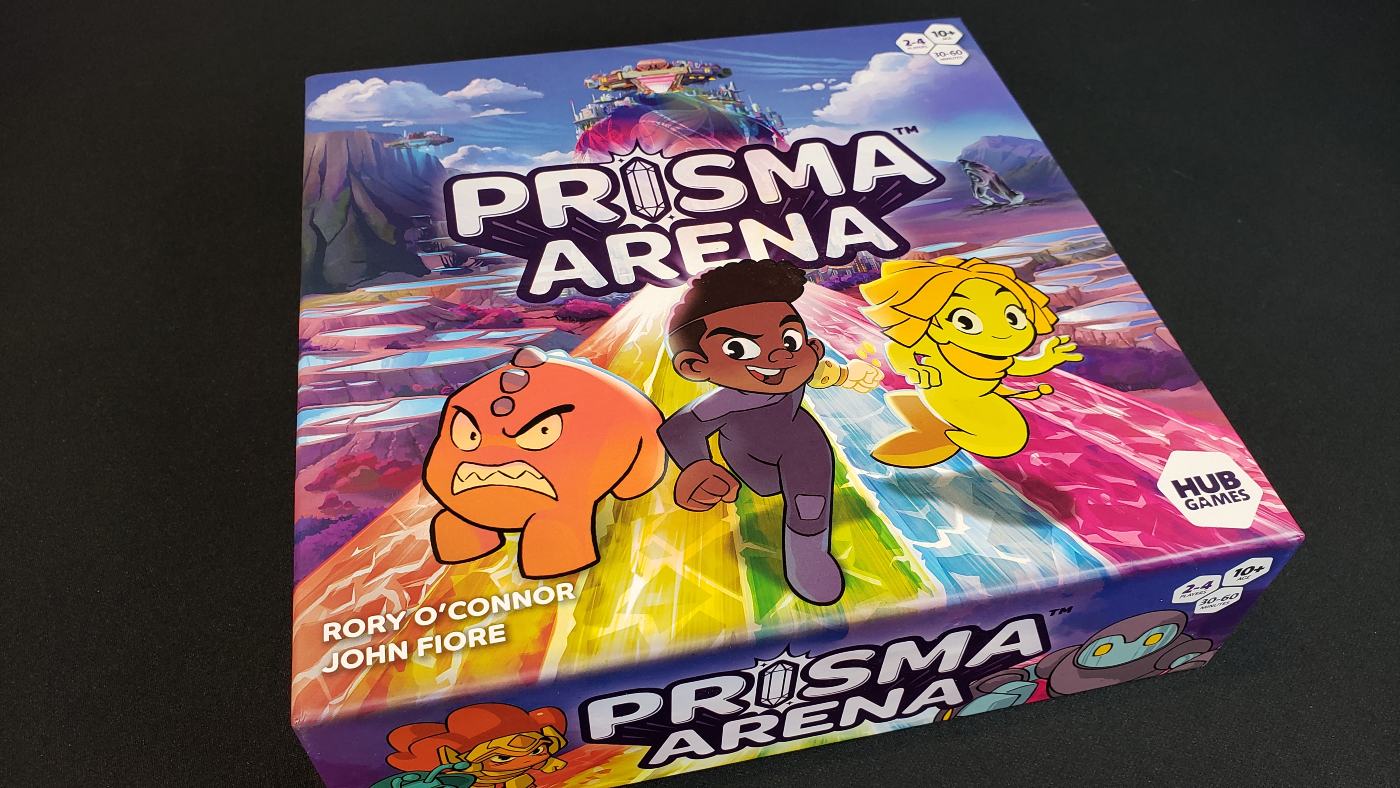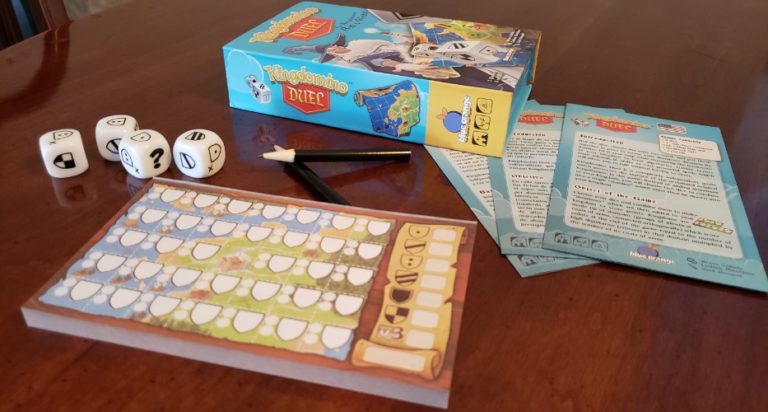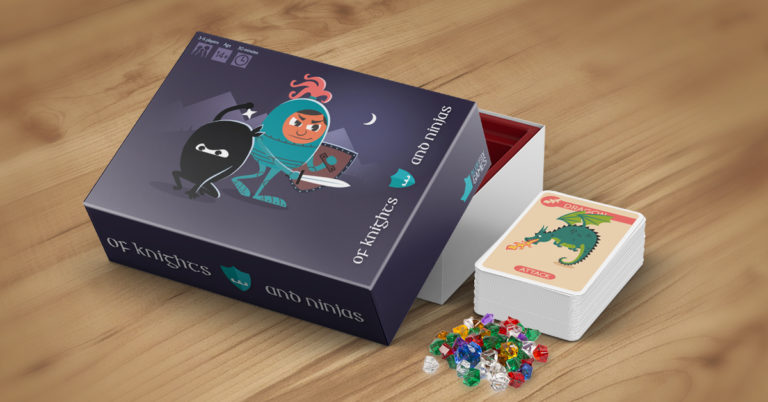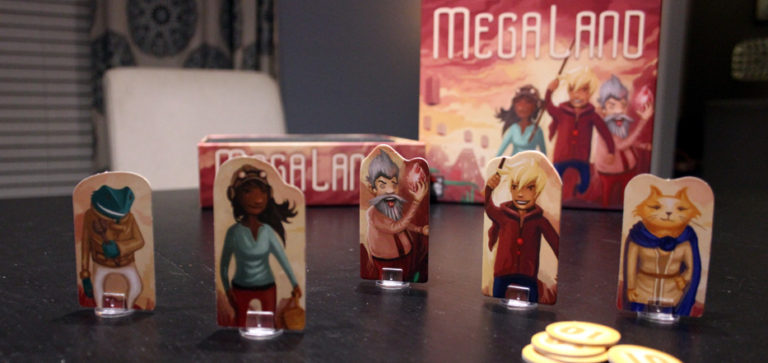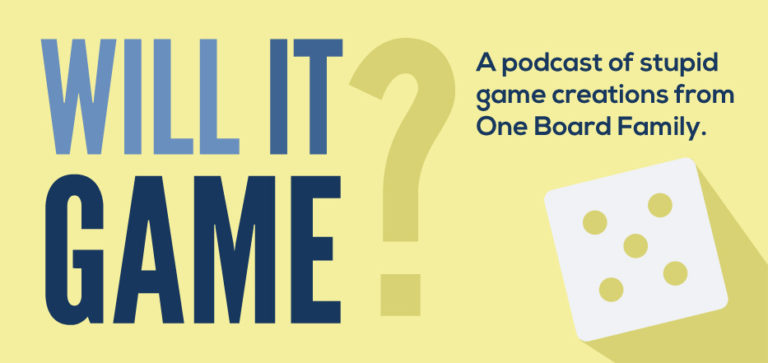I need to start this review by sharing that Prisma Arena took me by surprise. Judging the game by it’s outward appearance, I expected this to be a casual game we jump into with our kids. What I found was a deeper than expected “legacy” style game that felt like a board game and video game had a baby.
While most arena battle games are focused on violently decimating your opponent, Prisma Arena is built with a deeper purpose in mind. Players control warriors that are training or sparring with other players in the arena. Instead of shooting and killing one another, they are training in the martial art of Prismakata. Each trip into the arena gives you a chance to have Mo’kon fight alongside your character. The Mo’kon are creatures that embody specific emotions such as nervousness, jealousy, confidence and more. There are a total of 8 Mo’kon who train with your hero.
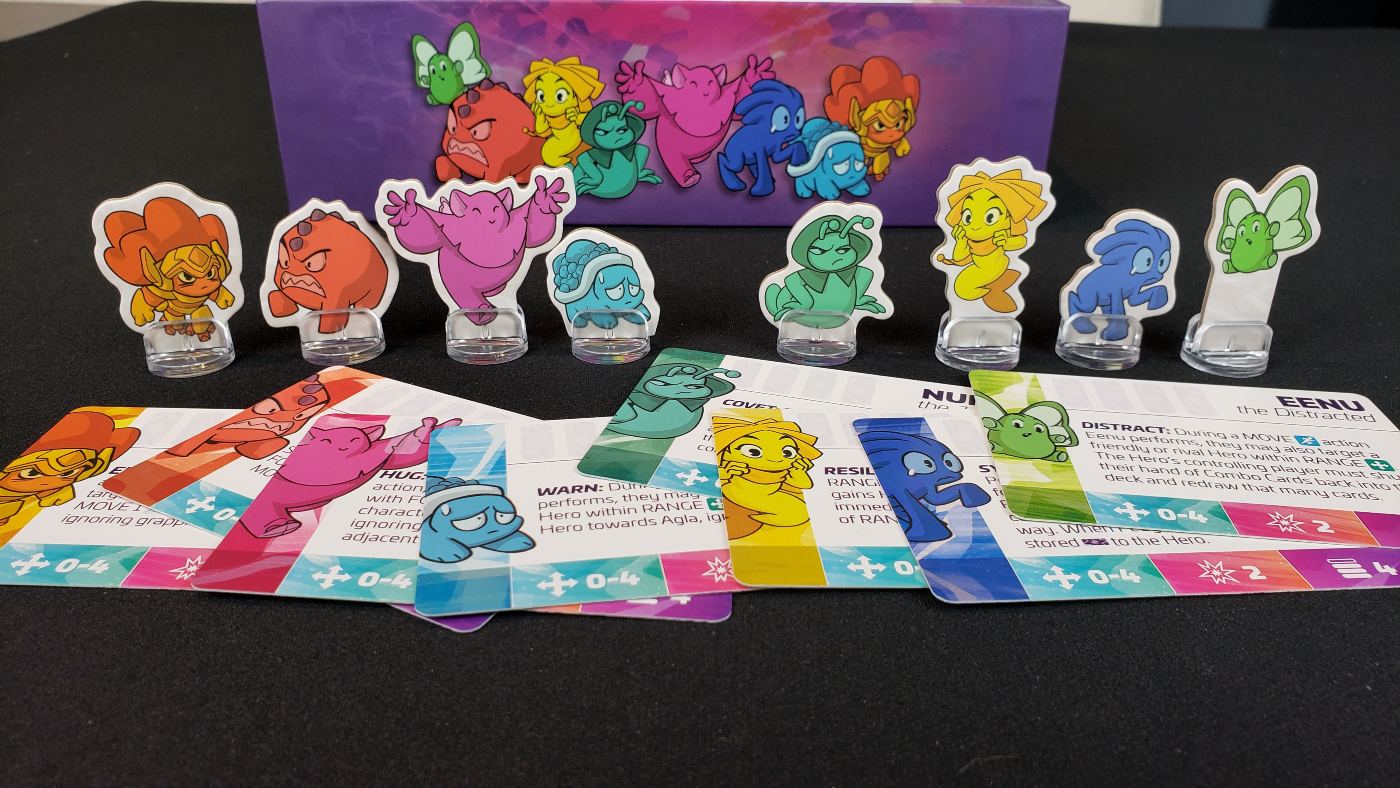
Choose Your Fighter
Players start Prisma Arena by choosing a fighter they are going to train. The 4 heroes are a blank canvas for you to decorate and level up through your training. Sticker sheets offer players a variety of customization options which gives you a real connection with the character.
While in the arena, players will move, blast, strike and perform combos based on their hand of cards. While the cards will require reading for younger players, Hub Games did an excellent job with how players create combos through iconography. The goal of each game is to be the first one to reach 20 points in the arena. These points are scored when you “bounce” a hero or Mo’kon from the arena.
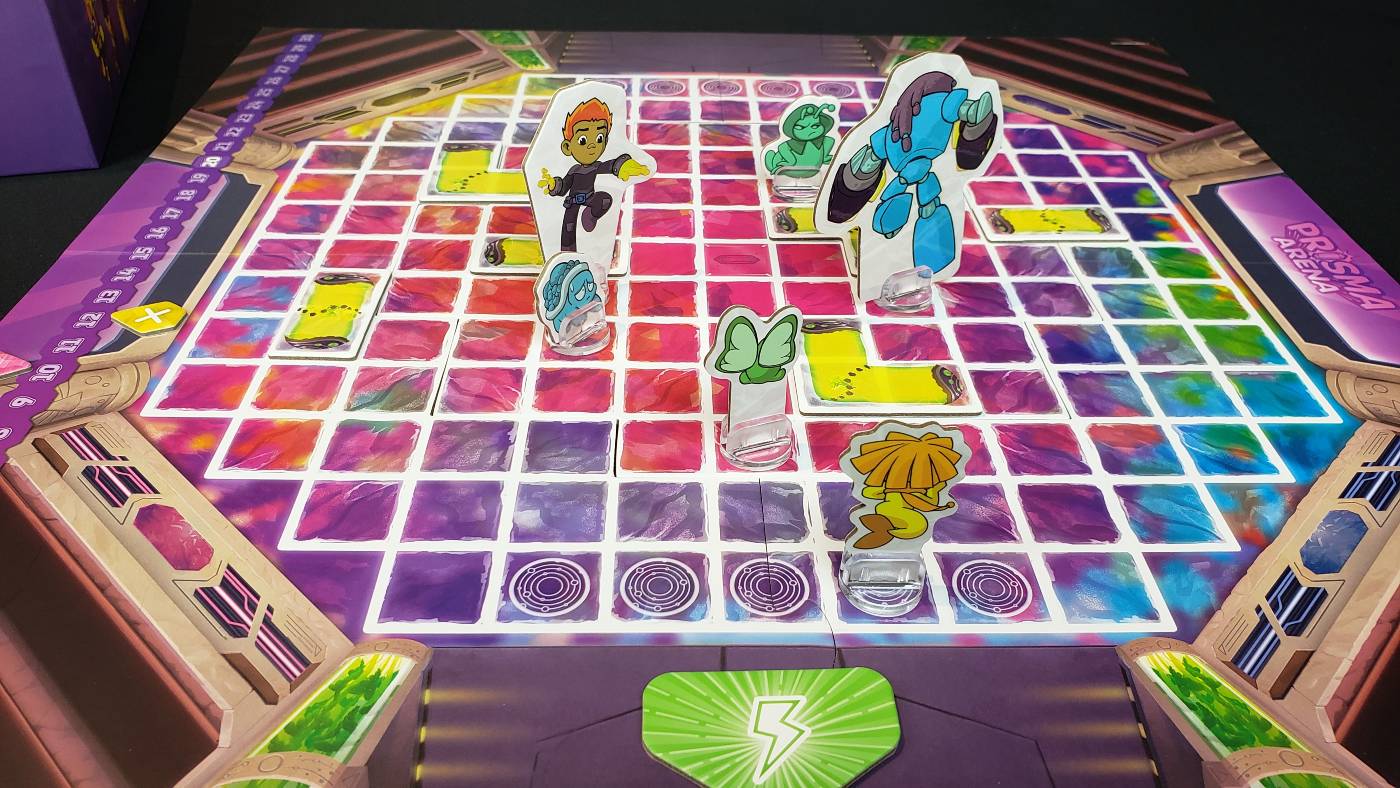
A character is bounced when their hit gauge is full. Players that contributed to the hit gauge then get the points they earn on the score track. The final round takes place when a player reaches 20 points, but the player with the most points at the end of that round wins the game.
You’ll find yourself moving tactfully throughout the arena, attempting to keep out of reach of your opponent. Every space matters as you try to get the right angle to blast your opponent. There is a real depth in Prisma Arena that keeps us coming back to the game for more.
Heroes and Mo’kon can only be activated one time per round so there’s definitely strategy in the order that you use your characters. Each character has an action dial that keeps track of the action they used and whether or not they are ready to activate. Keeping track of everything works very smoothly as players take turns in the arena.
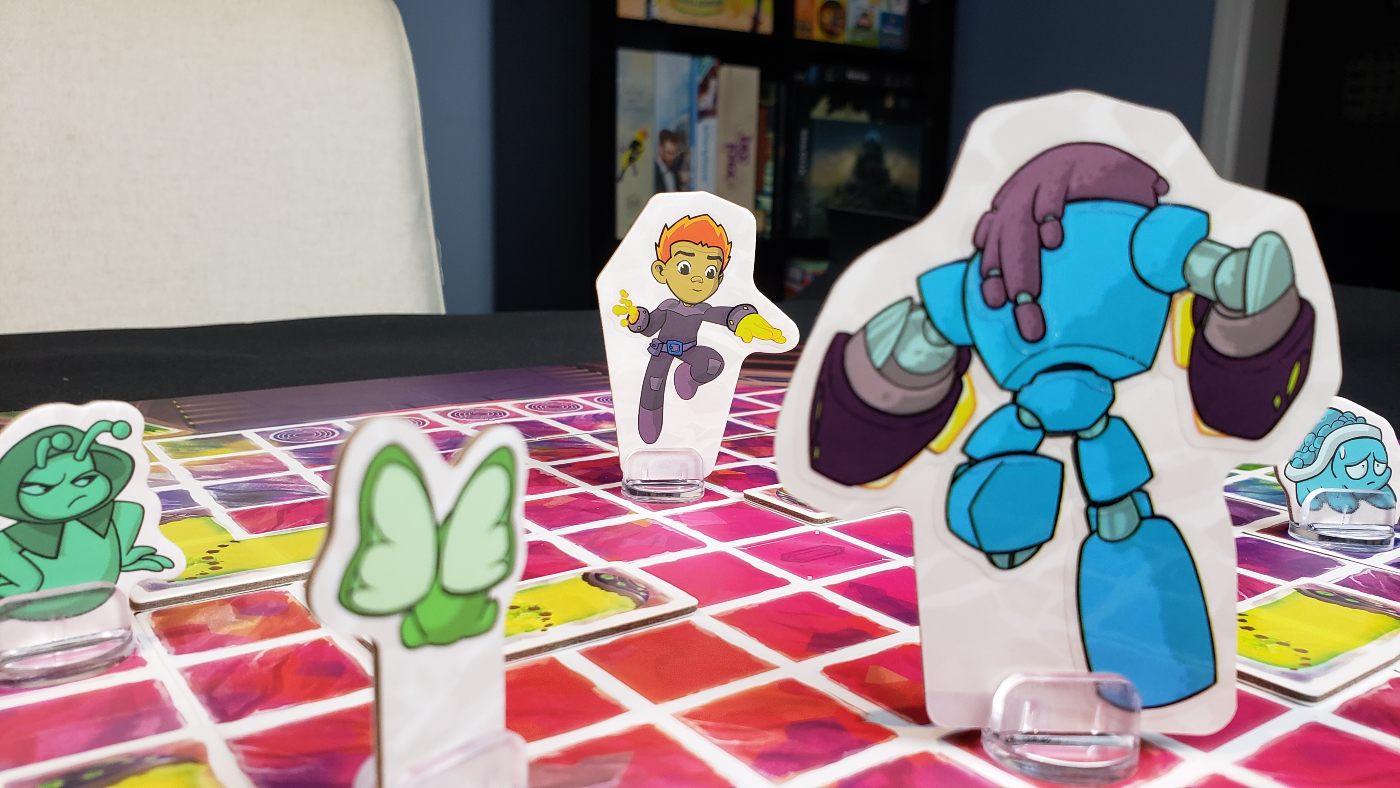
The Perfect Combo
Combo cards are at the heart of Prisma Arena. These cards allow you to chain together different actions that will catch the other players off guard. When you play a combo card, it’s then discarded next to your opponents combo deck. This means that cards will cycle to your opponents giving them the opportunities to create combos that you just had in your hand.
This combo system reminds me of an old school fighting game where specific moves seamlessly transition into more powerful attacks.
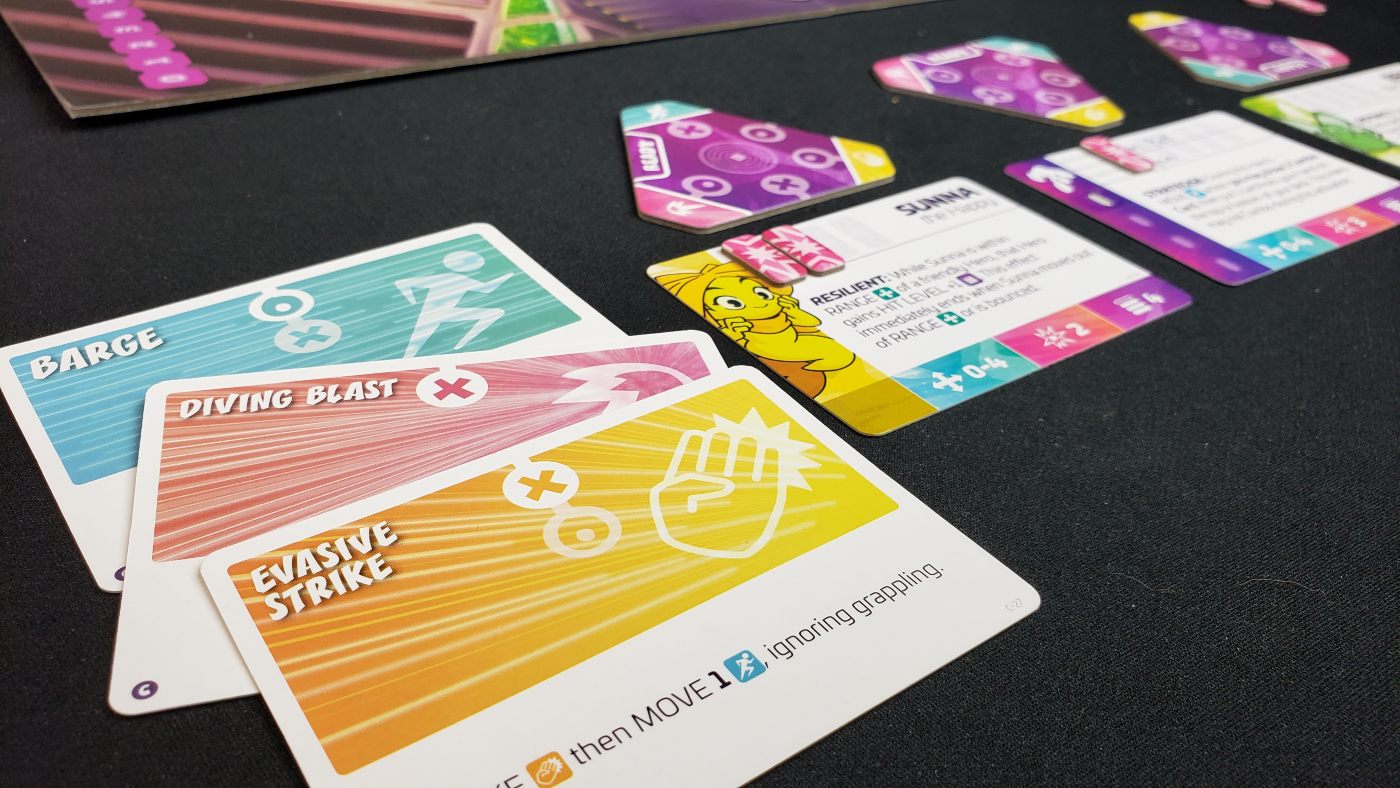
Prisma Arena Legacy?
I did not expect to fall in love with the way this game unfolds game after game. Each time you play, you record Prisma Points on your hero’s card. As you level up, your hero will gain new costumes and powers that stay with the hero as they advance. I’m telling you, this is one of the most satisfying mechanics I’ve seen in the past couple years in a family game.
Heroes can gain new Prisma Powers in the arena by ending a turn on the glowing center of the board. Powers can be used during the current game (if you’re the right level) or saved for later use. Either way, these powers stay with your hero and add to the unique abilities that you develop as you play.
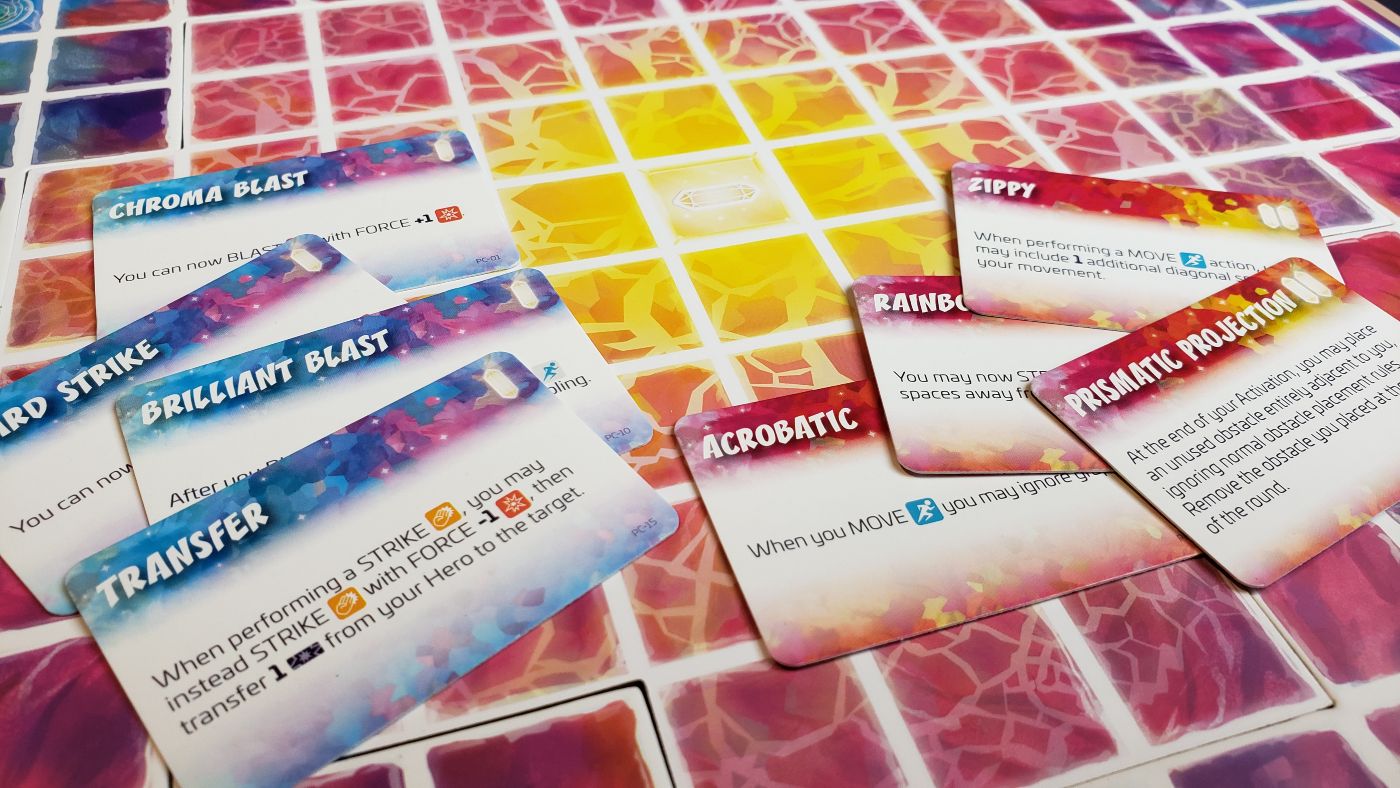
Prisma Arena creates a system where you honestly care about leveling up and taking this modified hero into the arena again and again. It’s tough not to play another match when you’re only one Prisma Point away from the next level. The game even gives you an opportunity to level up by taking each of the 8 different Mo’kon into the arena. This pushes players to try the different allies and earn points along the way.
Players can store the different upgraded costumes in their hero’s locker. Each character has a branded bag that can hold the newly earned cards and hero standee.
Level Up
While the box screams “kids game”, Prisma Arena has done an incredible job of making me care about advancing this imaginary character. I really appreciate how the designers tied in allies that are based on emotions. I feel like this can be a great conversation piece for parents as they play the game with their kids.
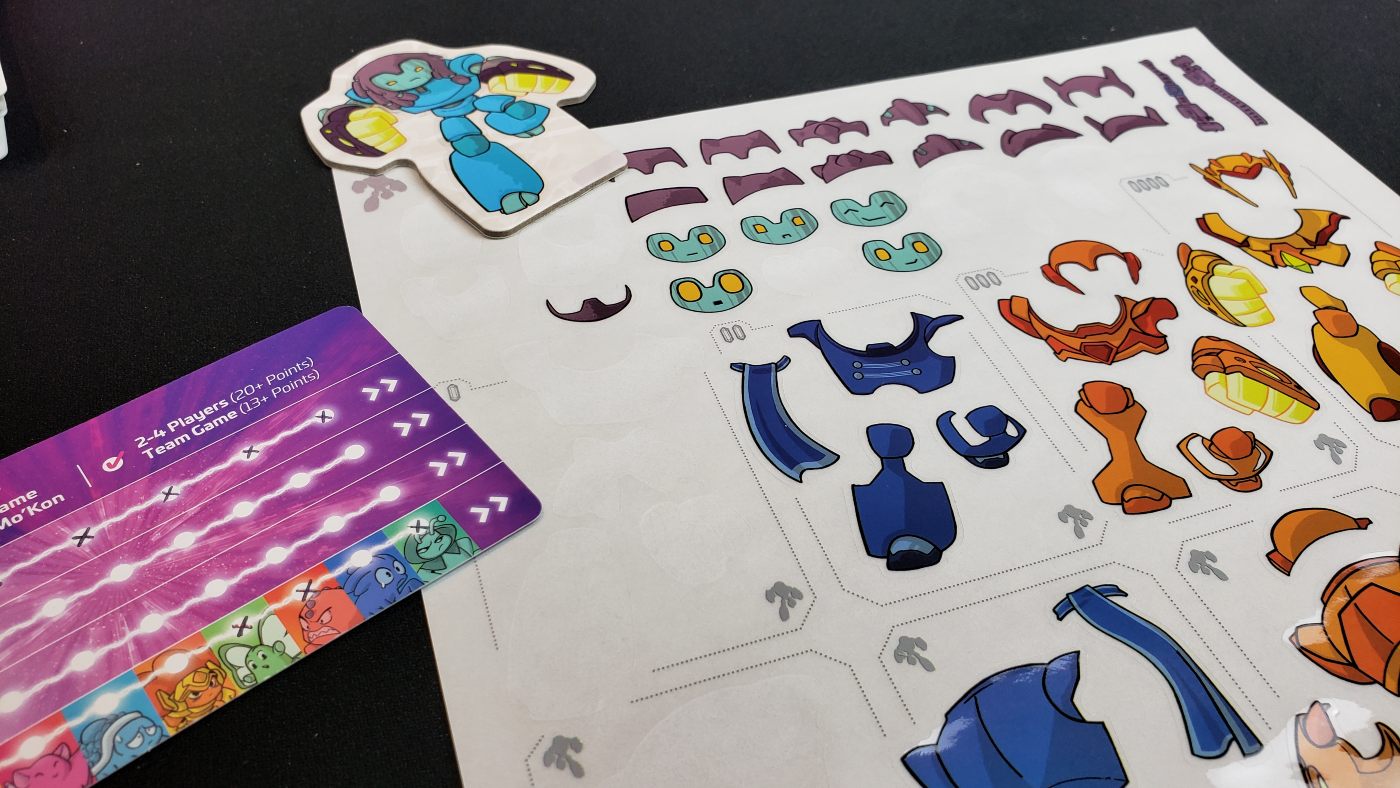
Prisma Arena might not be the game that I recommend to my friends with smaller kids. Even though the components are amazing and customizing your hero is a lot of fun, much of the strategy would probably get lost on players younger than 10.
Rory O’Connor and John Fiore have created something very special that I hope gamers stop and enjoy. You can see the passion that has gone into this game. Prisma Arena is a bright spot in a year that has been pretty tough for everyone.
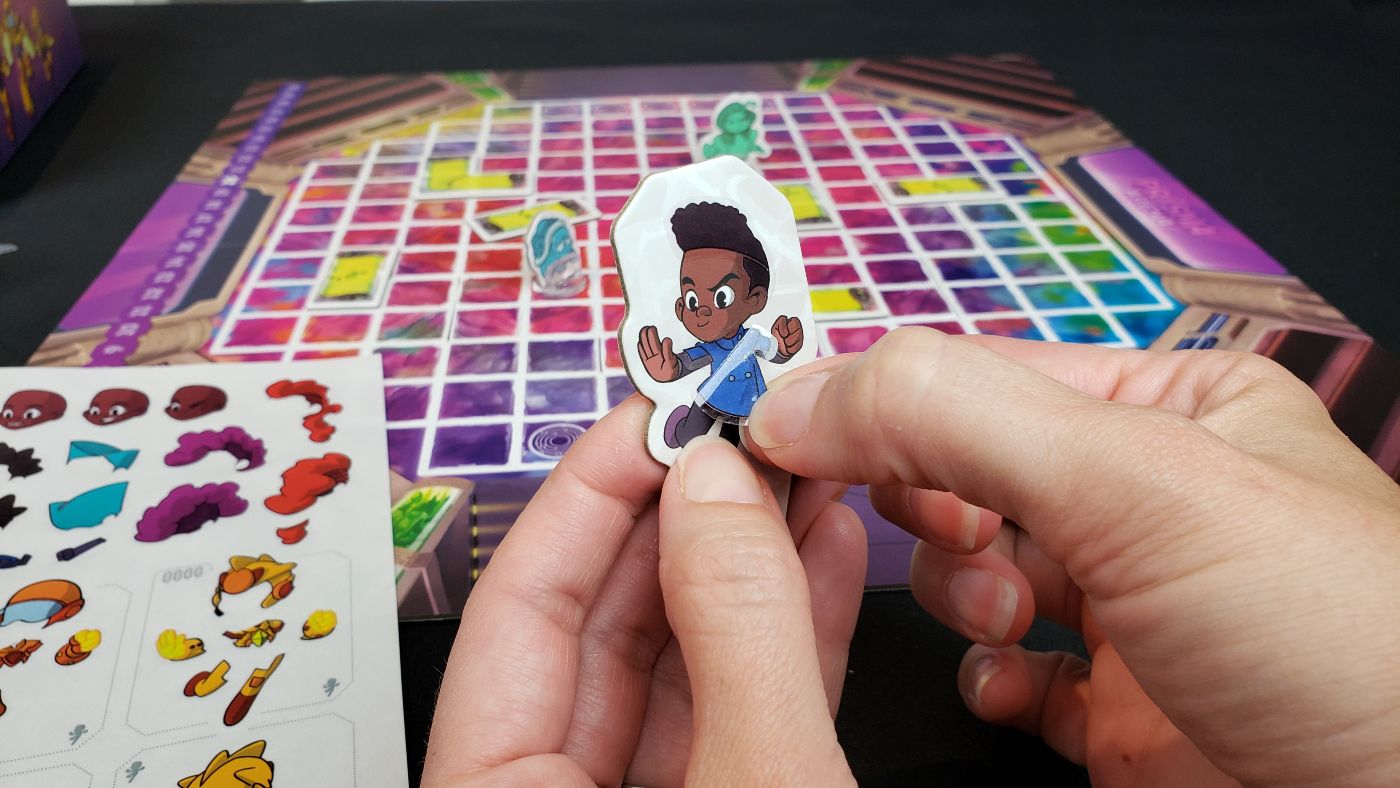
You can purchase Prisma Arena at your local game store or purchase online at Hub Games or on Amazon today.
This game was provided to us by the publisher for review. Read more about our review policies at One Board Family.
Highs
- Combo card system gives players control over the action
- Leveling up system and customization is phenominal
- Focus is on training versus “killing” other players
- Attention to detail and diversity is top-notch
Lows
- Not a great fit for younger kids despite the artwork

